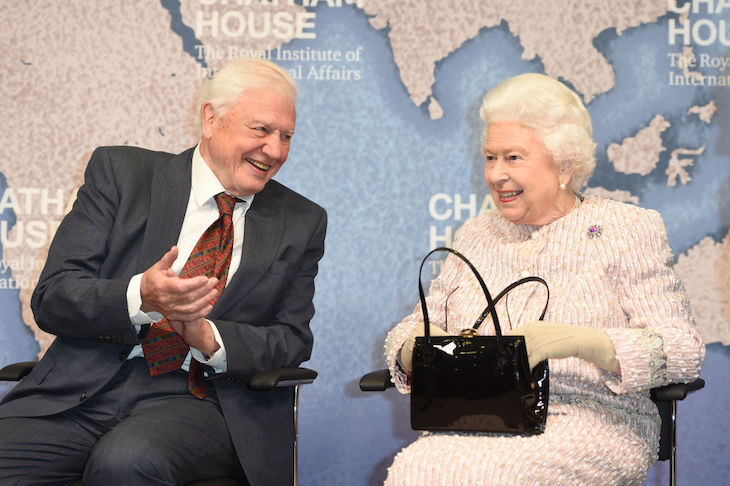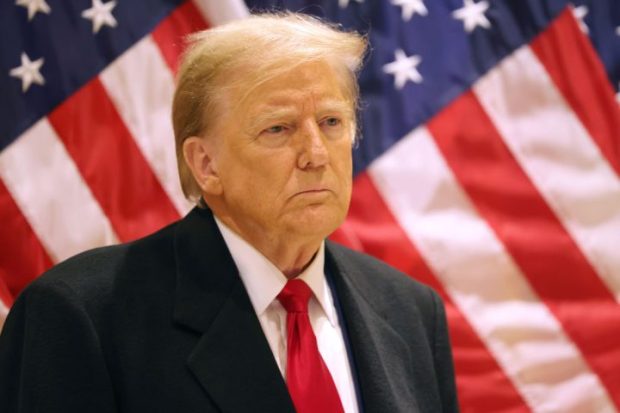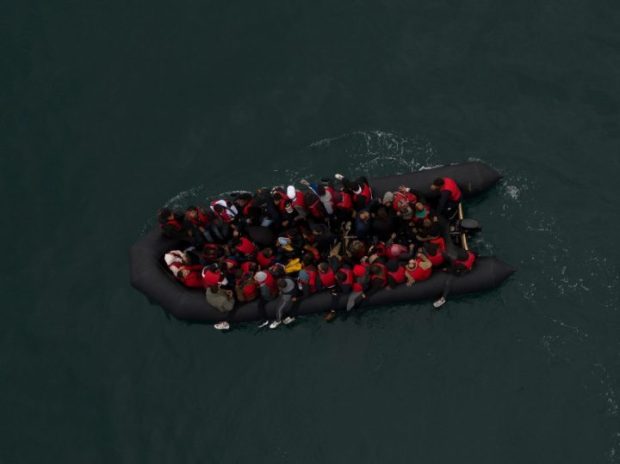Every November the London based foreign affairs think tank, Chatham House, awards a prize for ‘the most significant contribution to the improvement of international relations in the previous year’. This year, the joint laureates were Sir David Attenborough and the BBC Studios Natural History Unit for the television series Blue Planet II. It is a choice which, as a long-standing member of Chatham House, I regret.
Don’t get me wrong. My misgivings are not about the prize itself, which was designed to raise the think tank’s national and international profile and is now in its 15th year. My doubts stem entirely from this year’s choice of recipients.
The contortions in the official pronouncement betrayed something of the problem. Here is the Director of Chatham House, Dr Robin Niblett, trying to shoehorn Sir David and co. into the criteria set for the prize:
‘Plastic pollution is one of the gravest challenges facing the world’s oceans, and undoubtedly an international issue… Blue Planet II spurred a passionate global response and generated clear behavioural and policy change.’
He went on to cite efforts by the G20, the UK government, the Commonwealth and the UK public to respond.
And here is a Chatham House PR person, trying equally hard on Twitter:
‘Environmental action is an international issue, so it seems fitting that the Queen awarded Sir David Attenborough and Julian Hector from the BBC Natural History Unit the @ChathamHouse Prize for making a difference in international affairs #CHPrize.’
How can Sir David Attenborough and the BBC’s Natural History Unit – for all their obvious merits – really be judged to have ‘made the most significant contribution to the improvement of international relations in the previous year’? To environmental campaigning, yes; to broadcasting or film-making, also yes. But to improving international relations?
To be fair, the prize winner is chosen by all Chatham House members, so the ultimate decision rested with us. But the shortlist – which is drawn up by the three presidents of Chatham House on the basis of nominations from staff – is crucial and it is surely questionable whether, on a strict reading of the criteria, Sir David and the BBC should have made the cut.
This year’s other two nominees were the Prime Minister of Ethiopia, Abiy Ahmed, for his efforts to reform Ethiopia and improve relations with Eritrea, and the Prime Minister of Iceland, Katrín Jakobsdóttir, for her ‘progressive policy agenda in the areas of gender equality and female economic inclusion’. To my mind, only one of the three – Abiy Ahmed – met the criteria for the prize, but maybe his earlier award of the Nobel Peace Prize worked against him. Anyway, once up against the celebrity appeal of Sir David Attenborough and the year’s most fashionable cause, he probably never stood a chance.
This year’s prize does not represent any sudden change of direction. It is more a sign of the times; part of a longer-term trend as big awards go to high-profile organisations rather than to individuals, especially those in the area once defined as international relations.
Last year’s Chatham House Prize went to the already much-garlanded Committee to Protect Journalists, beating nominees such as Mario Draghi, President of the European Central Bank, and Halima Ismail Ibrahim, Chair of Somalia’s National Independent Electoral Commission. Medecins sans Frontieres won the prize in 2015, and Melinda Gates the year before. The creators of Blue Planet II are just the latest manifestation of this trend.
So why shouldn’t we just sit back and accept that times are a-changing and that celebrity teamwork rules when it comes to Chatham House? Partly because Sir David and Blue Planet II already have such an abundance of awards. Partly because a unique institution seems to have needlessly followed the crowd.
Mainly, though, it is because, for an establishment dedicated to international relations to have nominated someone whose achievements lie so obviously elsewhere, seems symptomatic of a more general decline in the standing of international relations across the board.
What used to be a well defined area of study seems to have split in two, leaving a rather large gap in the middle. On the one hand, there is the highly theoretical approach that tries to reduce international relations to scientific formulae. On the other, there is the scenario or project-based approach that focuses on recommendations and solutions. Old-style regional studies, linguistic expertise, traditional diplomatic skills (and the ability to read them) increasingly seem to get lost in between.
And if somewhere like Chatham House, whose central purpose for nearly a century has been the study and discussion of international relations, chooses a celebrity environmental campaigner for its annual prize, rather than an individual who has taken a personal risk and managed to improve even a small bit of the world, that sends a clear message. The risk is that there will now be one less institution considering ‘the forces that move nations’, as Tolstoy called them in War and Peace, which threatens a damaging and potentially irretrievable loss.
Got something to add? Join the discussion and comment below.
Get 10 issues for just $10
Subscribe to The Spectator Australia today for the next 10 magazine issues, plus full online access, for just $10.




















Comments
Don't miss out
Join the conversation with other Spectator Australia readers. Subscribe to leave a comment.
SUBSCRIBEAlready a subscriber? Log in